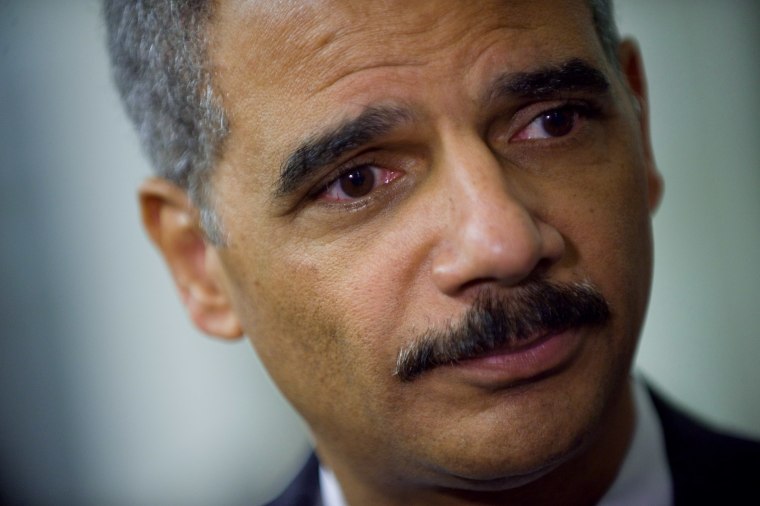The nation's crime labs are so seriously deficient that criminals are allowed to go free, the wrong people are sometimes convicted and only a "massive overhaul" can improve the results, according to a long awaited report out Wednesday.
The National Academy of Sciences says with the single exception of DNA, no other crime scene evidence is dependable enough to allow police officers to testify in court, as they often do, that it's "a match" to a specific person. That's true, the report says, of analysis of hair, fibers, bites and tool marks — all of them long used to obtain convictions. Subsequent DNA testing, it says, shows that some of these analyses produce erroneous results.
"The fact is that many forensic tests — such as those used to infer the source of toolmarks or bite marks — have never been exposed to stringent scientific scrutiny," it says, adding that even fingerprints are subject to varying interpretations.
Attorney General Eric Holder declined to address the report's specifics but acknowledged that crime labs face a serious lack of resources. "We need to devote a lot of attention and a lot of resources to that problem," he said.
'Science should serve the law'
The report's authors say the root of the problem is the lack of strict standards. They call on Congress to establish a national institute of forensic science to accredit crime labs, require that analysts be certified and establish uniform standards for analyzing crime scene evidence.
What's more, the report says nearly all crime labs are run by police or prosecutors, which exert pressure to come up with specific conclusions. The labs should be removed from the administrative control of law enforcement agencies or prosecutors, it says.
"Science should serve the law. Law enforcement shouldn't drive the science," said federal Judge Harry T. Edwards of Washington, D.C., one of the panel's co-chairmen.
The panel's conclusions were welcomed by lawyers for the Innocence Project, which has employed DNA evidence to help free 232 wrongly convicted defendants. It says more than half of those cases involved evidence from invalidated branches of forensic science.
'Far too many weaknesses'
"Any self-respecting criminal defense lawyer that doesn't read this report is malpracticing," said the Innocence Project's Barry Scheck.
"But we can't rely on judges, juries, prosecutors and defense lawyers in the cauldron of the courtroom to get to the bottom of what's wrong with certain forensic disciplines," Scheck said.
Sen. Patrick Leahy, the Vermont Democrat who chairs the Senate Judiciary Committee, said the report calls attention to "far too many weaknesses in our system of forensic science."
"I am troubled by the report's general finding that far too many forensic disciplines lack the standards necessary to ensure their scientific reliability in court. I am also concerned that forensic laboratories and their experts do not have uniform, mandatory accreditation policies," Leahy said.
Labs underfunded, underequipped
Even so, coming up with the money to adopt the report's recommendations will be difficult in the midst of a troubled economy. Despite that challenge, the report's authors say states can begin to take modest steps by agreeing to have their labs and employees certified.
The National Academy of Sciences was directed by Congress to assess the quality and needs of the nation's crime laboratories. Wednesday's report, "Strengthening Forensic Science in the United States: A Path Forward," is the work of a panel of 17 experts, including scientists and lawyers.
In short, the report says the nation's 389 publicly funded crime labs are underfunded, underequipped and so unconnected to scientific standards that testimony in court about their results is often vastly overstated. Just giving the labs more money, the panel concludes says, will not solve the problem.
"The forensic science community lacks the necessary governance structure to pull itself up from its current weaknesses," it says.
